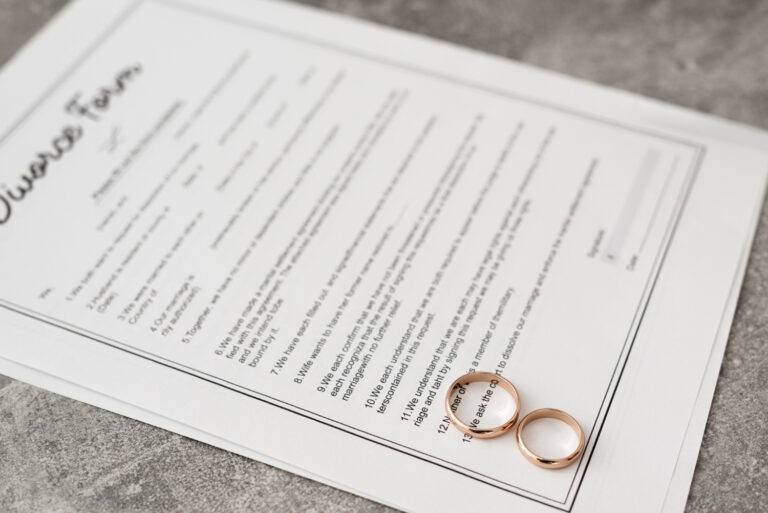Paying QDRO Fees in Divorce
When dealing with a divorce, many couples are surprised by the intricacies of splitting retirement accounts. At BruegelPC, we often get asked: “Who pays the QDRO fees in a divorce?” These fees can be an unexpected cost during an already stressful time. Let me guide you through understanding who is typically responsible for these costs and how to navigate this process smoothly.
From the point of view of legal requirements, either party in the divorce can pay the QDRO fees, or they may split the cost. The final decision on who pays is usually agreed upon by both parties or decided by the court.
Introduction to QDRO Fees in Divorce
A Qualified Domestic Relations Order (QDRO) in a divorce can significantly impact the division of retirement assets, often involving complex fees.
To simplify, QDRO fees are the costs involved in preparing and getting a QDRO (Qualified Domestic Relations Order) approved.
These fees can differ based on how complicated the retirement accounts are and what the QDRO specifically needs. They usually cover lawyer fees, court filing fees, and possibly extra charges from the plan administrator.
It’s important for both people going through a divorce to know about these potential costs so they can plan their finances accordingly. In a basic sense, sometimes these fees can be quite significant compared to the assets being divided, so it’s very important to keep them in mind.
Working with a skilled attorney who knows about QDROs is important to make sure the documents are done correctly and meet all legal requirements. Mistakes in preparing a QDRO can cause delays or even result in losing retirement assets, so it’s wise to hire a professional to avoid costly errors.
What Are QDRO Fees?
QDRO fees cover the preparation and processing of a Qualified Domestic Relations Order, a very important legal document that ensures retirement or pension benefits are correctly divided in a divorce.
When it comes down to it, the fees for a QDRO can vary based on how complicated the case is and how involved the people are. These fees can include charges from lawyers, court filing fees, and fees from the retirement plan manager for reviewing and processing the order. It’s important to understand these fees before you divide retirement assets.
In concise terms, sometimes both parties share the costs, while other times, one person may pay the entire amount. It’s a good idea to talk to a family law attorney to find out about the QDRO fees and make sure the process is done correctly and smoothly. Also, consider the long-term effects of dividing retirement assets and get professional advice to protect your financial interests during a divorce.
Factors Influencing QDRO Fee Costs
QDRO fee costs are influenced by the plan’s complexity, the specialist’s expertise, the asset amount, the jurisdiction, and any extra services like negotiations or court representation.
So to speak, other things that might affect the cost of a QDRO include how many people or beneficiaries are named in the order and any special details that need to be taken care of.
At its simplest, it’s important to look closely at the fee structure and any possible extra costs with the person handling the QDRO so you know exactly what you’ll be paying. Also, talking about payment options and possibly negotiating fees at the start can help keep costs down and prevent any unexpected charges during the process.
Who Typically Pays QDRO Fees?
QDRO fees are typically split between both parties.
In essence, the cost of preparing and processing a QDRO (Qualified Domestic Relations Order) can change based on how complicated the case is and the lawyer’s fees. Sometimes, the court might decide one person should pay, but often the cost is split between both parties.
In general terms, who pays for the QDRO is usually either decided by the court or agreed upon by both parties. It’s essential that both people agree on who will pay these fees before moving forward, to avoid any arguments or delays in the divorce. Both parties are advised to get legal help to make sure their rights are protected during the QDRO process.
How to Manage and Split QDRO Fees
Interestingly, an effective way to manage and split QDRO fees is by consulting with your divorce attorney upfront about the specific charges involved in the QDRO process.
To put it simply, make sure you understand how the fees will be broken down and shared between everyone involved. It’s important to talk and agree on how to split the fees, whether it’s an even 50/50 split or based on each person’s contributions to the retirement account. Keep communication open and clear to prevent any confusion or arguments.
Predominantly, think about the overall cost of the QDRO process and decide if it’s fair to split the fees evenly or if one person should pay more based on their financial situation. Write down any agreements about the fees so there are no arguments later. Finally, stay informed and involved in the QDRO process to make sure the fees are handled as agreed.

The Closing Remarks
When it comes to covering the costs of a Qualified Domestic Relations Order (QDRO) in a divorce, the responsibility typically falls on the party who benefits from the division of retirement assets.
What LawOfficeOfBrianKelly is expecting you to is, however, the specific terms can vary depending on the agreement reached between the divorcing parties. Ultimately, the payment of QDRO fees is an important aspect to consider during the divorce process.
Trending Articles
Navigating the financial aspects of a divorce can be complex, especially when dealing with QDRO fees. If you’re looking for more information or resources to help with the divorce process, these articles offer valuable insights.
- Read more about the best online divorce services available in Texas.
- Learn more about the fastest online divorce services for processing in Michigan.







